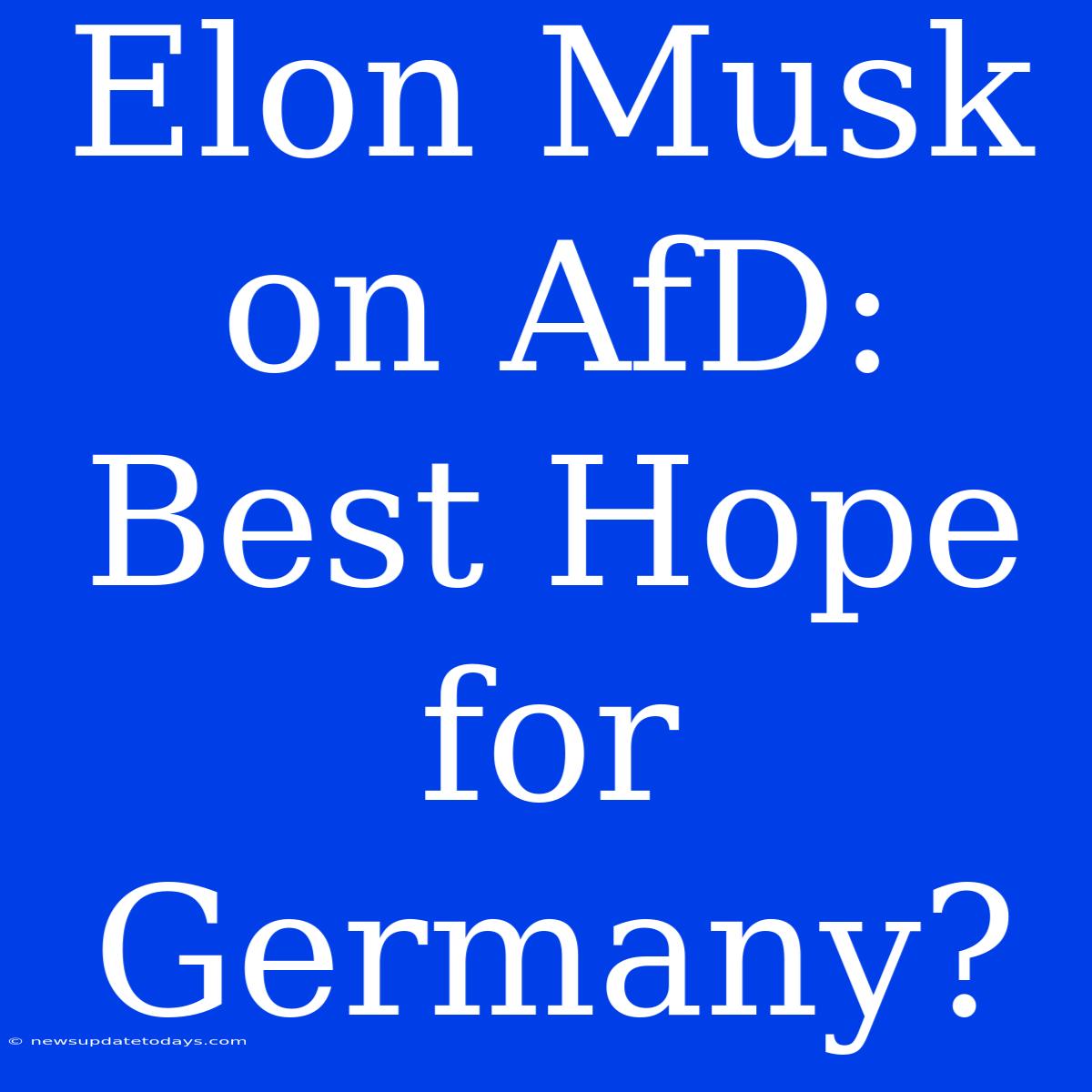Elon Musk on AfD: Best Hope for Germany? A Controversial Opinion Explored
Elon Musk's recent comments regarding the Alternative für Deutschland (AfD) party have sparked intense debate. While he hasn't explicitly endorsed the party, his statements hinting at the AfD as a potential solution for Germany's problems have ignited a firestorm of controversy. This article delves into Musk's comments, examines the AfD's platform, and explores the implications of such a potentially influential endorsement.
Understanding the Controversy:
Musk's opinions, often expressed via Twitter, are known for their unpredictability and tendency to challenge conventional wisdom. His seemingly positive comments about the AfD, a party positioned on the right-wing of the political spectrum, are particularly jarring given Germany's history and its current political landscape. The implication that the AfD, a party criticized for its nationalist and populist stances, could be Germany's "best hope" is considered by many to be deeply problematic.
Analyzing the AfD's Platform:
The AfD's platform includes policies focused on:
- Stricter immigration controls: A core tenet of the AfD is a significant reduction in immigration, a position viewed with concern by many due to its potential impact on Germany's economic growth and societal diversity.
- Economic nationalism: The party advocates for policies that prioritize German interests in international trade and investment, potentially leading to protectionist measures.
- Euroscepticism: The AfD expresses strong reservations about the European Union, advocating for greater national sovereignty. This stance raises questions about Germany's role within the EU and its potential impact on European integration.
The Implications of Musk's Statements:
Musk's influence as a tech mogul and global figure is undeniable. His statements, however seemingly casual, carry significant weight and can shape public opinion. The potential for his comments to legitimize or normalize the AfD's platform is a major concern for many. This concern is amplified by the fact that his views reach a vast audience globally, with the potential to impact not only German politics but also perceptions of the country internationally.
Counterarguments and Perspectives:
Critics argue that Musk's apparent support for the AfD overlooks the party's controversial history and problematic rhetoric. Concerns have been raised about the party's links to far-right extremism and its potential to undermine democratic norms. Moreover, the suggestion that the AfD represents the "best hope" for Germany disregards the existing moderate parties and their contributions to German society.
Conversely, some might argue that Musk's comments reflect a broader dissatisfaction with the current political establishment in Germany and a desire for alternative solutions. However, it's crucial to emphasize that supporting a party doesn't automatically equate to endorsing all of its policies.
Conclusion:
Elon Musk's comments regarding the AfD are far from conclusive. However, they highlight the complex and often divisive nature of German politics and the significant influence wielded by prominent figures on global public discourse. Understanding the nuances of the AfD's platform and the implications of Musk's statements is crucial to a well-informed discussion about Germany's future. It's vital to maintain a critical perspective and engage in thoughtful analysis rather than simply accepting statements at face value. The "best hope" for Germany is ultimately determined by the electorate, and the future of the country hinges on informed and engaged citizens.

